
THE VOICE OF INTERNATIONAL LITHUANIA
|
VilNews has its own Google archive! Type a word in the above search box to find any article.
You can also follow us on Facebook. We have two different pages. Click to open and join.
|
Archive for March, 2011

Evaldas Ignatavičius, Vice-Minister of Foreign Affairs of Lithuania
The FINANCIAL -- VILNIUS. A three-day expert seminar on anti-corruption policy and integrity training, a joint initiative of the OSCE and the Organisation for Economic Co-operation and Development (OECD), started in Vilnius on March 23. Evaldas Ignatavičius, the Vice-Minister of Foreign Affairs of Lithuania, said in his opening speech at the seminar: “The promotion of good governance and fight against corruption are important goals for the 2011 Lithuanian OSCE Chairmanship and the OSCE in general.” He also stressed the important role OSCE field operations play in assisting OSCE participating States to devise and implement anti-corruption strategies on the ground.
To read more, go to
“The FINANCIAL”
http://finchannel.com/
- Bookmark :
- Digg
- del.icio.us
- Stumbleupon
- Redit it

One Lithuanian journalist has hit the limits of press freedom
Freedom of the press is an important right in Europe, but not every government welcomes it. In Lithuania, a journalist who wrote critically of the KGB, was found guilty of libel and sent to jail.
Gintaras Visockas has worked as a journalist for 20 years. He's seen a lot in that time; among other posts, he was a correspondent in the North Caucasus during the first war in Chechnya. Since then, the 43-year-old has covered military topics.
One of the recurring themes in his current publication, an internet newspaper called "Slaptai" ("Secret"), is the closeness of Lithuanian politicians to the old secret police of the Soviet Union, the KGB. Recently, an article Visockas wrote about the former presidential candidate Ceslovas Jezerkas got the journalist into hot water. Jezerkas was previously an officer in the Soviet army, and eventually became a general. Visockas wrote that he participated in martial arts.

Long defunct, the KGB still wields influence
"I said in my article that in the Soviet Union, all the talented martial artists were controlled by the all-powerful KGB. I never wrote that Jezerkas worked for the KGB. I wrote 'controlled,'" said Visockas. "We can look in any dictionary and see that there is a big difference between these two words. The KGB controlled everything back then, not just martial artists but journalists and chess players, too."
A court in Vilnius saw things differently, though, and allowed Jezerkas to file a libel suit in 2009. The court ruled that "the average reader" would take away the impression that Jezerkas had worked for the KGB if they read Visockas' article. Visockas was sentenced to a 10,000 euro ($14,200) fine. He couldn't pay the money and had to spend 40 days in jail.
'We're not free'
Dainius Radzevicius, the head of the Lithuanian journalists' union, says this decision by the court is indicative of the situation for many journalists in the country...
Read more at:
http://www.dw-world.de/dw/article/0,,14937688,00.html
- Bookmark :
- Digg
- del.icio.us
- Stumbleupon
- Redit it
Oh dear, Lietuva! :-(
- Posted by - (4) Comment
Apparently you have no vision; your President is being knocked for standing up to the USA; and your young people are leaving in droves for better job opportunities and education in foreign lands.
I have been visiting Lietuva since 2003, before you joined the EU. Previous to that I had contacts with Lithuanians who spent their holidays in England. In those eight years I have seen Lietuva changing, going places, advancing, taking its place in the modern world. At the same time, my country (Britain) has been going down the pan.
Clearly corruption in public life is a problem in Lietuva, as it is in Britain. The difference is that Lietuva impeaches its politicians, whereas we literally let ours get away with murder. It is virtually impossible to have corrupt politicians removed from the British Parliament. The new British Government has promised reforms to remedy this situation, but as recent events have shown that corruption is endemic at all levels in both our Houses of Parliament, the chance of a swift adoption of anti-corruption measures is unlikely.
I’m English (of Swedish decent) so cannot speak for America where clearly most emigrants went to escape Nazi and Soviet domination in the 1930s and 40s. I suspect much of the economic migration of recent years is directed towards Britain, which is obviously cheaper to get to, and will let Lithuanians and Poles in without hindrance, unlike the US and other European countries.
We have a saying “The grass is/isn’t greener on the other side”. Be under no illusion; the grass is not greener in Britain. Much of the right-wing press (which is virtually all of it) is very anti Lithuanians and Poles who come here “stealing our jobs, occupying our houses, poncing off the State, stealing, sex trafficking, scrounging etc”. Rarely mentioned is the contribution to our economy by doing jobs that our British scroungers and benefit claimants won’t do. I’ve personally known university educated Lithuanians who have worked in abattoirs and done cleaning jobs in order to earn a living here. Many of the less well educated Lithuanians have been unable to find work and become homeless without receiving any help from Social Services. It is not surprising that many have returned disillusioned to Lietuva and Poland.
Why do you knock your education? From my experience, and that of former Lithuanian student friends, it is much better in your country. Whilst on holiday here, one of them managed to sit in on a week of classes at a local further education college (gymnasium). She was appalled at the attitude of the students who were quite obviously not there to learn. She gave up any idea of continuing her studies in Britain. Her sister, who is now working as an architect (a vocation under threat due to Government economic cutbacks) in London, recently married, and said she would move back to Lietuva when her children are born, so they could get a good education. It is shameful that many young people who have been through the British education system cannot read and write adequately, and have very little knowledge of life outside their small social environment. “Where is Lithuania?” is a question I am often asked, which echoes the inscription on the front of a tee-shirt I bought from Vilnius University in 2003.
Since I started visiting Lietuva, I have seen the rise of supermarkets, a lot of new buildings, motorways, new trains. Not always for the best; supermarkets have decimated the street kiosks and small shops, just as they have done in Britain. How you restrain the power of these organisations I don’t know, but be warned, if you don’t, they will destroy the fabric of your society. I’ve noticed many Coca-Cola machines sprouting on the streets of cities, but what really angers me is that in the supermarkets they have pushed gira out of the fridges onto the shelves – who wants’ to drink warm gira? I refuse to buy Coke both here and in Lietuva. Fortunately there is alus, but there are restrictions on where it can be drunk.
People in the West look at the average multi-storey housing block with disgust. In Britain we have an antipathy towards multi-storey communal living. Everybody wants their own little box to hide away in; and for all except the very rich, those little boxes are shrinking rapidly. I’ve been in many flats in Panevėžys, Vilnius and Kaunas, and been pleasantly surprised how clean and well-furnished they are, even where the outsides are tatty and the roads and pavements are diabolical. Many put the interiors of British homes to shame. Outside, British homes, cities and open spaces are regarded as dumping grounds for all kinds or rubbish. Dog mess on pavements is a recurring subject of letters to local papers. Your old ladies who go round picking up what very little litter there is in Lietuva, would have a field day in London or all other cities in Britain. Except of course, with few exceptions, road sweeping tends to happen only in the early morning by huge mechanised vacuum cleaners.
Obviously with increasing wealth, the desire to own your own house rather than a flat is taking hold in Lietuva. As in Britain, this can be a dangerous trend. I, like many thousands of home owners, lost my house due to repossession when Government-induced financial policies caused the mortgage payments to be unaffordable. I have seen housing estates and a large school in Panevėžys abandoned as a consequence of the financial crash of Russia in the early days of independence. However, as someone interested in architecture, I am impressed by the variety of designs on your new estates, compared to the collection of small identical boxes on the average British housing estate.
Before I leave the subject of housing, I must praise the design of much of the Council built multi-storey housing estates in Lietuva (and Latvija). Not only are the designs interesting, unlike British equivalent developments which were built on the cheap post war, but the greenery around them can be beautiful. There are “garden cities” in Britain, but the norm is concrete rather than grass and trees.
You have lovely countryside with huge areas of gorgeous forest, pretty lakes and rivers with clean water which won’t poison you if you bathe in them.
As for President Grybauskaite opposing the American’s security plans GOOD FOR HER! If only other World leaders had the guts over the years to make a stand against some of the corrupt and monetarist behaviour of the USA, the World might (?) be a better and safer place.
Lietuva, don’t keep knocking yourself.
Aš mieltu Lietuva!
Tony Olsson
North Devon, United Kingdom
- Bookmark :
- Digg
- del.icio.us
- Stumbleupon
- Redit it

Children sex trafficking is a sickening trade hidden away in British backstreet brothels, where children from the world’s poorest countries are held against their will.
Some are under 10 years old, unable to speak a single word of English and separated from their families on the fake promise of a better life in Britain.
Sold as commodities to be bought by pimps when they arrive here, they have little chance of escape.
Their bleak journey begins in the poorest nations of Africa, Asia and Eastern Europe.
“Audra was 17 when she was recruited by a trafficker from a children’s home in Lithuania.
When she arrived at Dover, in the UK, with four other girls in 2007, they were taken directly to a brothel in north west England and forced to work as prostitutes.
She was then moved to another brothel in south west Wales. Within 24 hours of arriving Audra was rescued by police from the Welsh brothel and placed in a safe house - after she contacted Lithuania and desperately appealed for help to return to the children’s home.”
The UK ‘Mirror’ newspapers have this week started a ‘crusade to end horror of child sex trafficking.’
YOU an help by signing their petition!
Read more at: http://www.mirror.co.uk/news/top-stories/2011/03/15/crusade-to-end-horror-of-child-sex-trafficking-sign-our-petition-today-115875-22990327/#ixzz1HEvVoR9W
- Bookmark :
- Digg
- del.icio.us
- Stumbleupon
- Redit it
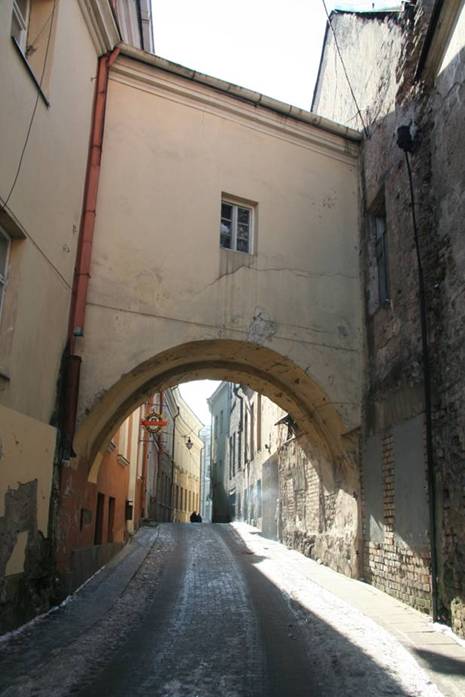
Vilnius Old Town
You can and should visit Lithuania for a lot of reasons this year – as you can see from our below survey. Common for all the 30 ideas mentioned, is that here you get top quality and tons of experience – for half the price – if to compare with most West-European countries.
We do, however, recommend you to plan your trip thoroughly, well in advance.
If you wish, we can help you to put together the most perfect programme for your trip, and give you some hints about how to get here, where to stay, with whom to deal and much more...
If this would be of interest for you, please do not hesitate to write us at editor@VilNews.com
Let us know some details about the main wishes you have for your visit to Lithuania, what to see, what to do, when you plan to come, and so on...
|
A – NATURALLY Nature has been generous to Lithuania. Although there are no mountains or big forests, the country's beauty lies in the diversity of its landscape. This is a place of rolling hills and gentle plains; of quietly flowing rivers and of lakes which reflect the blueness of the sky. |
|||||||
|
|
|
|
|||||
|
B – MUST SEES Vilnius Old Town has a stunning array of Baroque and Gothic architecture, a truly amazing place to visit and experience. It's also in Vilnius centre that you find the KGB Museum, a reminder of the gruesome Soviet oppression this country was forced to live with for 50 sad years. But only 30 km from the city, there is a strong medieval symbol of the 500 years of glory, when Lithuania was a leading superpower of world format. |
|||||||
|
|
|
|
|||||
|
|
|
|
|||||
|
C – CULTURE Far too few people outside Lithuania know what a tremendous treasure of culture this country represents! Today Lithuanian art is not only flourishing at home but is also gaining recognition internationally. Though not every poster tells that a nightingale soprano, a graceful ballerina, or a divine cello player comes from Lithuania, the probability that you have just enjoyed a concert of a Lithuanian artist is great, whether it be New York, London, Berlin, or Vilnius. |
|||||||
|
|
|
|
|||||
|
D – HEALTH & WELLBEING Many people come to Lithuania for quality health care of various kinds. Medical quality here is very high and prices for services very low... In addition the country has a number of extremely good spa and tourism resorts where visitors can undergo all kinds of treatments or simply relax and charge their batteries... |
|||||||
|
|
|
|
|||||
|
E – SPORT, OUTDOOR LIFE & PHYSICAL ACTIVITIES This year's EuroBasket tournament takes place in Lithuania (Aug-Sep). But Lithuania has also numerous other sport activities and events to offer, all year around. The Lithuanian lakes and rivers are full of fish, and the forests full of wild animals including deer, wild bears, beavers, elks and many others. One is allowed to hunt elks, wild bears, wolves, foxes, hares and birds, such as geese, ducks and woodcocks. |
|||||||
|
|
|
|
|||||
|
|
|
|
|||||
|
F - JUST FOR FUN Wondering what to do in Lithuania? We can help you stay busy, don't worry... We can tell you about the most popular tourist attractions, beaches, outdoor/indoor activities, nightlife and much, much more... |
|||||||
|
|
|
|
|||||
|
G – WINING & DINING The natural and healthy character of its dishes is what makes Lithuanian cuisine unique. There are all kinds of restaurants in absolutely all corners of the country – international and local dining and wining from Nida to Druskininkai, from coast to inland, not to forget the big cities... |
|||||||
|
|
|
|
|||||
|
H – HOTELS, CONFERENCES Lithuanian hotels offer a large variety of accommodation options. Though the country has undergone vast economic development, it also retains ties with its nature loving, glorious pagan, countryside past. Did we mention conferences? Try Lithuania – fantastic quality, half the price! |
|||||||
|
|
|
|
|||||
|
Oops... We forgot to mention golf... As compensation we are ready help you finding the best offers from the country's top golf courses... OK? |
|
- Bookmark :
- Digg
- del.icio.us
- Stumbleupon
- Redit it
Cardinal Vincentas Sladkevicius was my cousin
- Posted by - (0) Comment
by KR Slade
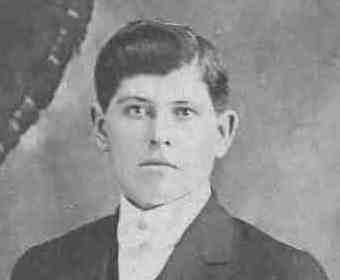
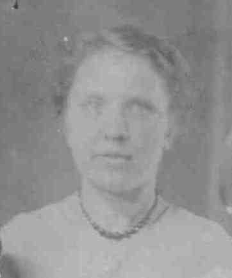
My grandfather Jonas Sladkevicius and grandmother Dominyka Juskeviciute Sladkeviciene
In 1960, my father told me that a member of our family was a bishop in Lithuania. It was there, when part of Czarist Russia, where my grandmother and grandfather had been born sometime in the last decade of the 1800's, from where they emigrated to Rhode Island in the United States where they would meet and marry in 1915. The information about the bishop came from the two Lithuanian-born priests at our Providence, RI church, Saint Casimir’s, where my father attended mass daily since he was a child. Dad also told me, “Don’t tell anybody”. We never again discussed the subject.
The secrecy about things-Lithuanian was already familiar to me by that time, when I was twelve. Details or actual proof of anything about Lithuania was rare. Lithuania was on the other side of the Iron Curtain. Russians (then meaning Communists) could and would make things difficult for those of our family still in the Lithuanian Soviet Socialist Republic, as well as for a missing few of the family presumed to have been sent to Siberia in eastern Russia. Furthermore, didn’t Russian secret agents murder the Lithuanian President early during World War II, when he was in exile in the United States?
Now, fifty years later, I have found, albeit accidentally, the absolute proof that the bishop is my cousin. He was born August 20, 1920, ordained March 25, 1944, named a bishop on November 14, 1957. Sadly, the bishop died on May 28, 2000. Equally sad, my father died in 1981, and would never know that our bishop would become a cardinal.
Bishop Vincentas Sladkevicius was named, in pectore, to the office of a Cardinal of the Roman Catholic Church in 1979 by Pope John Paul II. The Latin phrase is best translated ‘in the breast (heart)’; it means ‘secretly’: not even the bishop knew he was a cardinal until it was publicly announced on June 28, 1988. In fact, most Lithuanians (especially in Lithuania) did not know that Bishop Sladkevicius was a bishop, because upon his consecration the communist government immediately put him into ‘internal exile’, a form of house-arrest, sending him to a remote place in Lithuania (Birstonas village), not allowing him to perform his duties, and with a guard stationed outside his countryside house, which he was not allowed to leave, and where everyone visiting was threateningly examined and harassed.
I found the proof that I was a cousin of the Cardinal after being in Lithuania one year, and one month, one week, and one day. But I had not been looking for proof of my family relationship to the Cardinal; I had been looking for further proof of my Lithuanian descent, so as to obtain state recognition of my Lithuanian citizenship. I came to Lithuania to claim my inherent birth right, by both descent and ethnicity, as a citizen of Lithuania.
In the United States, before leaving for Lithuania, I had obtained about a dozen official documents such as birth, death, and marriage certificates of my parents and my paternal grandparents; and I had further affidavits from the funeral director of my parents, grandmother, and grandfather; all documents gave full and complete testimony as to my Lithuanian descent. These documents were government-certified, with the signatures and seals recognized throughout the United States.
When I arrived in Lithuania, the Ministry of the Interior would not recognize the documents because of a missing and required ‘apostille’. I had practiced as an attorney-at-law for 24 years in the United States and had never heard of an ‘apostille’. (This legal term has no relation to the Christian ‘apostles’, except perhaps for Doubting-Thomas!) It took a few months to determine how to obtain this continuing legal ‘relic from the past’: a further certification as to the authenticity of the US government-issued documents, for use of the documents abroad.
The Lithuanian Ministry of Foreign Affairs was helpful in assisting me in routing the documents to the Lithuanian Consul in New York City to obtain the required ‘apostille’ certification. This delay of many weeks was followed by the Lithuanian requirement of translating the documents into the Lithuanian language, at a considerable financial cost.
Once the documents were in the correct form, then they could be considered by the Migration Department of the Ministry of the Interior. Under Lithuanian law I am a citizen of Lithuania if my great-grandparents were Lithuanian (meaning ethnic origin) or if they were citizens of Lithuania. Therefore, I was not asking to become a Lithuanian citizen, such as by ‘naturalization’, I was asking for the state’s recognition that I was a Lithuanian citizen, by reason of my birth/ancestry.
The Migration Department made an administrative decision that my documents were not sufficient to grant recognition of my citizenship. This decision was made by unknown and unidentified persons, for no given reason(s), and with no right of internal appeal.
The Migration Department therefore sent the ‘not-approved’ application to the Presidential Commission, which has the authority to determine such ‘questionable’ applications. The file reached the Commission a few weeks after the President of Lithuania was impeached and removed from office: on grounds that included wrongfully granting a citizenship through this Commission. Although the Commission has the legal right to meet with applicants, hear witnesses, and take additional evidence, the Commission summarily denied my application. Their official record of consideration of my application consists of one sentence in which they recommend no citizenship. The decision contains no finding of facts, no conclusions of law, and no reasons. The certified decision document states their names, but bears no signature.
This record was ‘secret’; only after my bringing a lawsuit against the Commission would they release their record. They released the record one week after the Court ruled that they ‘had a reason’, and that therefore the decision was proper, even though this ‘reason’ was given to the court after the fact of the Commission’s decision. The Court would not consider my new evidence, because such evidence was obtained after the decision of the Commission.
My new evidence consisted of a certified copy of the report of the Archives of Lithuania showing: my grandfather was born on January 20, 1897 in the village of Guronys (in Zasliai), and baptized on February 9, 1897 in the parish church in the small town of Zasliai. The record shows his parents to be Jonas and Ona. Most importantly, but not so unusual, was the fact that his mother, Ona had the maiden name of Sladkevicius; she and her husband were distant cousins. This fact of the same family name would become very important in identifying family members, where 25 percent of the males were named Jonas (John) and 25 percent of the females were named Ona (Anna/Ann).
When I submitted the official Archive document to the Migration Department they responded with a letter that they cannot consider further applications from me because I have a case against them. After the court case had been decided, in their favour, I resubmitted the evidence. That was 8 November 2004 and it is now more than four months later; I have received no response.

My parents’ wedding, 1947.
On the first of November 2004, I went to the church at Zasliai. All Saint’s Day is the time that Lithuanians gather to remember deceased members of their family. At the graveyard, I found two graves with the name Sladkevicius, but their birth dates were too recent to be my ancestors. I did not know that I was at the wrong graveyard.
In mid-February 2005, I returned to Zasliai with Father Peternal, a Catholic priest from Wyoming who has been in Lithuania for ten years. We met with the parish priest, Father Klimas. When he saw the archive certificate of my grandfather, he showed us a hand-written manuscript of notes and charts detailing the Cardinal’s family history. I took a look at it, but could not make any sense of the document. He told us where to find the farmsteads of the Sladkevicius family, their family graveyard, and the large rock with the new memorial plaque for the Cardinal, where there will be a park to his memory. We wandered around in the snow of Guronys. From the edge of the forest at the hilltop cemetery with the many Sladkevicius graves, we saw a train. That railroad existed before my grandfather was born, and it could have taken a teenage boy (of almost 18 years-of-age) away from conscription into the Czars army for World War I, out of the Lithuania then called Russia, and to a boat to America.
With wet feet, we drove to Lithuania’s second-largest city, Kaunas, for the second half of our excursion. Beside the cathedral, at the Cardinal Sladkevicius Museum, we had an appointment with the director. I was introduced to Irena; she stared at me, took two steps to the side to see my profile, and said, “Of course. Same nose, same mouth, same between. All the Sladkevicius look like that.”
Irena began working for the Cardinal about 10 months before he died. She is a journalist who wrote the first book about him; his reaction was, “Why did you do that?” After his death she wrote a memorial book about his life. The two books are to be edited into one.
In this building the Cardinal lived the last ten years of his life; more than half of which he was ill with cancer. This ‘palace’ is not especially grand. The first floor is under renovation and had been used for administrative offices. The Cardinal’s apartments were on the second floor. There is a very large room used for receptions. There is a chapel for some dozen persons. She showed us the small room that was the Cardinal’s bedroom: a bed, a desk, a chair. Here he died. His death was after many years of suffering. He refused traditional medicine. “I will suffer like Christ on the cross.”
Irena was present when he died. The priest giving the Last Rites said, “Dear God, open Your gates of heaven, and let in Your servant.” That’s when he died. It was a very moving experience to touch his bed and pray there.
Irena showed us a copy of the genealogy manuscript of the Cardinal; this was the updated annex of the original that had been shown to us by Fr. Klimas in Zasliai. She insisted that I borrow it.
After many long hours over several days of examining the 53 pages of the Annex, I began to be able to read the handwriting, to translate the Lithuanian words, to understand the research methodology. The research shows the ancestors of the Cardinal, and it also shows his relatives who are my ancestors. The ‘family tree’ goes back to the early 1700's, almost 100 years before the Czarist Russian Empire annexed Lithuania. It shows the names, birth and death dates, marriages and dates, children and their dates; it also shows which house in the village that they lived. I am a very distant (4th) cousin of the Cardinal through my great-grandfather; but I am also a closer (3rd) cousin through my great-grandmother.
The author of the research report lives here in Vilnius, about 3 miles from me. I wrote a letter to him. He most graciously agreed to meet with me; we have met a second time. He is now obtaining certified documents from the Archives to prove my great-grandparents’ birth/death and Lithuanian descent and citizenship. The documents will be ready in a few weeks. Antanas has written to other members of the family about me. Last week I received the first correspondence from a relative, an e-mail: “We want to socialize with you.”
Spring is coming. Some documents are coming. Antanas volunteered to go with me to Migration to ask about the status of my 8 November re-application, when I will have some new documents in my briefcase. Summer is coming. There will be a time for me to experience the traditional gathering of families. May 28 is the date of Cardinal’s death, and will be a couple of days after the first anniversary of my application for recognition of my Lithuanian citizenship.
- Bookmark :
- Digg
- del.icio.us
- Stumbleupon
- Redit it

Lithuania has raised its economic growth forecast for this year and next as export growth accelerates. Gross domestic product will probably rise 5.8% this year, compared with a September forecast of 2.8%, the Finance Ministry said. Growth will slow to 4.7% next year, compared with a previous estimate of 1.2%. The budget deficit will probably average less than 5.3% of GDP this year, compared with a budget plan of 5.8%.
In the long run, the continued rapid growth in exports and economic recovery spreading to other sectors will inevitably grow wages. The projection of average wage for 2011 was increased by LTL 61 up to LTL 2,064, and LTL 188 for 2013. The fastest wage growth - 7.8% - is likely to be observed in 2014 on a fall in the labour force supply. The Finance Ministry predicts that this year the unemployment level will drop to 14.9%. The increased consumer purchasing power will also contribute to a general level of price growth in later years. In 2011-2014, average consumer inflation is expected to remain stable at about 3.3% due to different factors.
- Bookmark :
- Digg
- del.icio.us
- Stumbleupon
- Redit it
![]()
Lithuania wants a regional court in Vilnius to investigate operations by Lietuvos Dujos (LDJ1L) AB management, including representatives of shareholder OAO Gazprom, as the state continues a dispute with the Russian gas supplier.
Chief Executive Officer Viktoras Valentukevicius, Chairman Valery Golubev and board member Kiril Seleznev ignored the interests of Lithuania and didn’t negotiate a fair gas price for supplies from Russia, the Vilnius-based Energy Ministry said in an e-mailed statement today.
Read more at:
http://www.bloomberg.com/news/2011-03-17/lithuania-to-ask-court-to-investigate-lietuvos-dujos-management.html
- Bookmark :
- Digg
- del.icio.us
- Stumbleupon
- Redit it
Searching for the Holy Grail? Come to Vilnius!
- Posted by - (14) Comment
|
|
- Bookmark :
- Digg
- del.icio.us
- Stumbleupon
- Redit it
Hitherto unknown Da Vinci painting uncovered; the cousin of Lithuania’s Grand Duchess Bona Sforza
- Posted by - (7) Comment
|
The painting was thought to be an obscure 19th Century work known as Young Girl in Profile in Renaissance Dress. It has been revealed, though, to be a hitherto unknown work by Leonardo da Vinci and has been renamed La Bella Principessa. The painting became known when it showed up in a Christies auction house catalogue in the early 1990s. It sold for $19,000 to an art dealer named Kate Ganz, who subsequently sold it for a similar price in 2007. The work is now in a Swiss bank vault and is valued at $160 million. Peter Silverman, an art collector, was the first to suspect that the work was not 19th Century. After study, Silverman concluded that the painting was a hitherto unknown work of Leonardo da Vinci, one of the most famous artists of the Renaissance. Further study using the latest in digital imaging technology discovered a partial hand print and a fingerprint that matched those found on two other known works by Leonardo da Vinci. Finally Da Vinci expert Martin Kemp, Professor Emeritus at Oxford University, was called in to examine the painting, Kemp concluded that the painting was indeed a Da Vinci, likely dating from 1496. The work was executed on vellum and was meant to be the cover of a book of poetry, meant as a gift. Kemp believes that the portrait is of Bianca Sforza, daughter of Ludovico Sforza, Duke of Milan and his mistress Bernardina de Corradis. Hence Martin Kemp has renamed the painting, La Bella Principessa. |
|
- Bookmark :
- Digg
- del.icio.us
- Stumbleupon
- Redit it
Lithuania and the Soviet Union 1939-1940
- Posted by - (4) Comment
Dear readers,
On 15 June 1940, Soviet Russia invaded Lithuania. This was the beginning of Lithuania’s loss of freedom for more than fifty years and the beginning of one of the saddest and most tragic parts of Lithuania’s history. There has been much talk and speculation about how this invasion came about and what Lithuania did, or as some would accuse didn’t do, to prevent it. To shed clear light on this topic, we would like to share with you parts of the personal memoirs of Juozas Urbšys who was a member of the group that personally met with Vyacheslav Molotov and Stalin. After reading these fascinating and very informative memoirs we are sure you will have a better appreciation for the precarious situation the leaders of the then free Republic of Lithuania were in and what they did to try to protect the lives of the Lithuanian people.
We will share these memoirs in 4 parts. Here is part 2 of 4
VILNIUS! ARMY GARRISONS …...
p. 12
(That same morning Urbšys flew from Moscow to Kaunas carrying with him the drafts of the two treaties and the two maps of Lithuania.
He pondered the war raging in Europe and the Soviet/German agreement which left the fate of Lithuania in the hands of the Soviet Union and dependent on its good or ill will. Urbšys entertained some optimistic thoughts about Soviet promises of non-intervention in Lithuanian internal affairs and the possibility that at war's end they would dismantle their army bases leaving Lithuania to go on with its independent life. He also thought that this was perhaps the last chance to reclaim Vilnius.
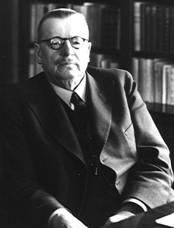
Juho Kusti Paasikivi
On the same plane with Urbšys were the Finnish envoy to the Soviet Union, Passikivi, and his wife. Urbšys remarks wistfully that, unlike him, they seemed calm and in a good mood. He points out that the future did not spare them. The Soviet Union, having established bases in Estonia, Latvia and Lithuania, decided that they wanted some in Finland. Finland refused to sign an agreement permitting this and on December 1, 1939 a war broke out between the two countries ending with a peace treaty signed on March 12, 1940. According to its terms, Finland ceded to the Soviet Union the isthmus of Karelia with its city of Viipuri (Vyborg) and leased the Hanko peninsula to them for thirty years.)
p. 13
Back in Kaunas, I reported to the government on the situation. Meanwhile, in Moscow, Latvia signed a mutual assistance treaty with the Soviet Union including, of course, the provision for Soviet troops on its territory. Our envoy in Berlin, having spoken to an official of the German Foreign Ministry regarding Germany's agreement with the Soviet Union to take a portion of Lithuania's territory, was told that Germany was dismissing this matter with a wave of the hand (laesst diese Sache unter den Tisch fallen).
(Urbšys then refers back to a previous citation from the French encyclopedia and notes, wryly, that Germany received about seven and a half million dollars from the Soviet Union for this "wave of its hand.")
The government of Lithuania decides to offer the Soviet Union a mutual assistance pact stipulating that there be no Soviet garrisons on its territory in peacetime. However, this pact would provide for a peacetime military collaboration between the two countries with the possibility of combining their armed forces in the event of enemy aggression.
In other words, there will be two treaties:
1. The treaty regarding Vilnius, such as the Soviet Union offered;
2. A treaty of mutual assistance with no Soviet troops stationed in Lithuania in peacetime but foreseeing a close military alliance of the two countries during wartime.
Our delegation is enlarged for the future negotiations in Moscow and now consists of the Deputy Prime Minister Kazys Bizauskas, General of the Army Stasys Raštikis, and, of course, our minister in Moscow Ladas Natkevičius. I, as Minister of Foreign Affairs, am asked to be chairman.
OUR WORDS — LIKE PEAS AGAINST A WALL
p. 14
In all likelihood, it was on the evening of October 7th that the delegation arrived in Moscow. We lodged at the Hotel Nacional. That same evening, the Lithuanian representatives were invited to the Kremlin where they were received by Molotov Potemkin, and Pozdniakov.
During the entire trip from Kaunas to Moscow I had racked my brain for the right words to make these muscovite officials understand that the introduction of Soviet troops into Lithuanian territory when neither country was at war was not only detrimental to Lithuania, whose sovereignty and national pride would be wounded, but to the Soviet Union as well. Had not the leaders of the Soviet Union, any number of times, openly condemned the establishment of military bases on foreign soil as injurious to the sovereignty of and a constant threat to those countries in which they were established? Had they not termed the treaties leading to the establishment of such bases as unjust? How then to convince them that a mutual assistance pact safeguarding the equal rights of both countries and freely entered into without the presence of a foreign army in time of peace would be a greater guarantee of security for both countries since it would be warranted by the approval of the entire nation?
Once again we arrive at the Kremlin. Molotov and I sit facing one another at the long conference table. To my right, Bizauskas, Natkevičius, Raštikis. To Molotov's left — Potemkin, Pozdniakov. The head of the table is empty; behind it, in the shadows, a door to the chambers beyond stands open.
I begin to set forth my anxious thoughts. I remind them of Lithuania's past and the fact that, from antiquity, Lithuania has been independent, a lover of freedom in whom this love has never perished. I remind them of czarist times, of the suppression of printing, of the abjection in which Lithuanians were held in their own country. I summon up the July 12, 1920 peace treaty based on that vaunted principle of the October revolution, the right of nations to self-determination, a treaty which was freely entered into by both nations, with no coercion, and which was to have lasted for all time.
Continuing on, I remark on the beneficial effect that such a high-minded and freely entered into treaty had on the relations between Lithuania and the Soviet Union. Relations which, from the signing of the treaty till now, had been excellent. In Lithuania, I tell them, there is a fund of good will towards the Soviet Union whose proclaimed ideas regarding the peaceful coexistence of nations and the need for international relations based on truth and justice have been, and continue to be, close to our hearts. Lithuania has always been loyal to the Soviet Union never engaging in any international intrigues against it.
Coming to the mutual assistance pact, I submit that in the belief of the Lithuanian government the basing of troops on Lithuanian soil when neither the Soviet Union nor Lithuania was at war with anyone would sow the seeds of mistrust between the two countries, depress the Lithuanian people, and turn the nation against the Soviet Union, for Lithuania would regard such a movement of troops onto its territory as nothing other than occupation. There would be constant misunderstanding between the armies as well as between the stationed troops and civilians. In the international arena, the presence of a foreign army on its territory would degrade the status of Lithuania to that of a dependent nation. Neither the Soviet Union's nor Lithuania's defense interests would be served by such a military action when there was no evident need for it. The security of both nations, however, would be greatly abetted by a defense treaty freely entered into by the two as sovereign nations.
I see Molotov nodding his head as I speak, as if in agreement. Hope kindles in my heart. The other members of our delegation later told me that they, too, had felt the same way.
Suddenly, Stalin appeared in the doorway of the far wall and came sullenly to the table. One could infer that he had been listening to the proceedings from the other room. We stood to greet him.
I said to him:
— In your absence, I was apprising the chairman (indicating Molotov with my eyes) of the views of the Lithuanian government regarding the matter we are deliberating. If you will permit me, I will briefly repeat my arguments.
— Very well, — he said, — sit down.
We all sit while Stalin remains standing. Watching him with upraised eyes as I briefly resume what I have just said, I see that he is getting impatient. He interrupts. I become even more succinct. Finally, Stalin cuts off my speech with:
— You argue too much (vy slishkom mnogo dokazyvaj'ete).
I sum up by saying that the government of Lithuania accepts the idea of a mutual assistance pact. However, it offers its own proposal for such a treaty which in its view, because it would not infringe on either country's independence, would be a surer guarantor of security. The essential difference between the two is that, until the war situation in Europe makes it inevitable, the Soviet Union would not deploy its army on Lithuanian territory.
Neither Stalin nor Molotov show the least bit of interest in the Lithuanian proposal. Troops will have to be brought in. They remind us once again that under the circumstances any capitalist country would simply occupy Lithuania while they, on the contrary, had no designs on either the independence of Lithuania or its internal affairs.
The following day (which was probably the eight of October), seeing that all arguments were fruitless, I implore Stalin in the name of the friendship between Lithuania and the Soviet Union to renounce sending troops into Lithuanian territory. His answer is a short and unsparing "No (Nyet)!"
I can no longer negotiate for I would be exceeding my authorization. Since the Soviet Union does not agree to our proposals, we must refer back to our government for further instructions. I then repeat the same question I had asked during our first meeting, that is, if the Lithuanian government would agree to any Soviet troops at all, could they not be based just in the newly re-acquired territory of Vilnius? The army must be stationed throughout the entire country, asserts Stalin.
The Moscow newspapers of October seventh or eighth had printed an article, together with pictures, about the meetings and demonstrations which had taken place in Vilnius, then still under Soviet rule. Not having those papers in front of me now, I could not say for sure what the demonstrators' demands were. I suspect that they were asking to be incorporated into the Soviet Union or, for what amounts to the same thing, the establishment of a Soviet regime. No other kinds of demonstrations would have been permitted.
One way or another, on October eighth Molotov brought these demonstrations to the attention of the Lithuanian delegation adding that the Soviet government could not placate the working people of Vilnius for long if they ignored their demands. It would be best to secure the necessary authorization and to sign a mutual assistance treaty today, he warned.
THE SIGNING
p. 17
On October 9, Deputy Prime Minister Kazys Bizauskas and General of the Army Stasys Raštikis left for Kaunas to inform the government about the progress of the negotiations.
The choice facing the Lithuanian government was as follows:
1. Either sign the mutual assistance treaty as demanded, thereby according the Soviet Union the right to establish a set number of military bases at specific locations on Lithuanian territory, and regain Vilnius and part of its territory;
2. Or, refuse to sign the treaty, fore sake Vilnius, and enter into a ruinous conflict with the Soviet Union. A graphic example of the form which such a conflict could take was the Finnish experience which I have alluded to earlier.
Understandably, the government of Lithuania chose the first alternative.
On October 10, Bizauskas and Raštikis returned to Moscow with this decision. The entire delegation then went to the Kremlin. Now that the Lithuanian government had acceded to the Soviet Union's demands it seemed that we would have no further difficulties. That was not entirely so.
We were met at the Kremlin by Molotov, Potemkin, and Pozdniakov. Stalin was absent. Molotov announced that the Soviet government had decided to join into one the texts of the two treaties agreed to earlier thus forming "The treaty of the cession of Vilnius to the Republic of Lithuania and of mutual assistance between Lithuania and the Soviet Union."
Familiarizing themselves with the new draft, the members of the Lithuanian delegation note that the length of time the treaty is in force has been extended to 15 years. This time frame, however, applies only to Articles 2-7, i.e., those establishing the obligations of mutual assistance. Article number one, dealing with the cession of Vilnius and its territory, is without time limit, that is, perpetual.
From further discussions we learn that the size of the army contingent to be sent in has also been increased. We attempt to voice our displeasure at these changes but are summarily cut off by Molotov announcing that this was Stalin's own decision and therefore further alterations are impossible. He orders an old text be brought in showing Stalin's changes in his own hand.
— There, you see, — he says, brandishing that contrived evidence.
— We would like to return to the legation and confer, — I tell Molotov.
— You can confer here. We will give you a separate room.
— We would be more comfortable at the legation.
Returning to the legation we look for the "safest" room in which to consult together. You see, the building used as our legation is being rented from the Soviet fund of government houses. Soviet repairmen work on the premises when something needs fixing. Our legation staff is almost certain that hidden microphones have been installed. Perhaps Molotov knew what he was talking about when he proposed that we consult right there in the Kremlin.
Having established that, talk all we want, we could negotiate nothing better, we "decide" to accept the changes.
This time when we return to the Kremlin, besides Molotov, Potemkin and Pozdniakov, we find an elderly officer, a representative of the Red Army.
— It seems that the staff has not drawn in for itself the line demarcating that which is to be under German control. Give them the map which we gave you during our first meeting. They'll draw in what's necessary and return it to you, — says Molotov.
I remove the map from my briefcase and hand it over to the officer adding:
— Only please do not forget to return it.
— Certainly, certainly. We'll draw in the line and return the map.
That is the last we saw of that map . . . In comes Stalin. Molotov tells him:
— All is taken care of with our Lithuanian friends (S litovskimi druzyami vsio uzhie ulazhieno).
— How's that, — replies Stalin, — until our offices prepare everything we can take some refreshment here together.
— Moreover, — he adds — now we must appoint a minister plenipotentiary to Lithuania (Karski having been called back, Pozdniakov was acting only as charge d'affaires.)
— What's your opinion? — he asks Molotov.
— It needs some thought.
Since the question was raised in front of us, I interject with a smile:
— You don't have to look any further than Mr. Pozdniakov who is already well acquainted with Lithuania.
Pozdniakov, somewhat befuddled, mumbled something or other. They only word I could make out was "exhaustion."
— You were sitting in jail, or what? — asks Stalin bluntly.
— No, but . . . and Pozdniakov mentions some family misfortunes.
Some cold food and drinks are brought to the other end of the conference table. Voroshilov and Zhdanov, with several days worth of stubble, join us. We talk and take some refreshment.
Stalin pokes fun at the Polish ambassador (whose name, I believe, is Grzybowski) who decided to protest the Soviet army's entry into Polish territory on September 17th. He condemns Rydz-Smigly for fleeing Poland and leaving the country to its misfortunes. Now there's a leader for you!
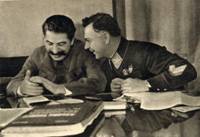
Stalin and Kliment Vorshilov
Voroshilov jokes:
— We propose to Ribbentrop that Germany and Japan accept us into the Antikomintern pact.
On the whole, Voroshilov seems like a humorous man.
A smallish fellow comes in, most likely from the office, to inquire about something. Stalin pours him a glassful of spirits and says:
— Drink!
The young man protests somewhat ceremoniously.
— Drink! Drink! Come, come. A Russian likes to drink (Piej, piej niechievo tut! Russkij chieloviek vypitj liubit!)
The young man lifts the glass, drains it in a gulp, and wipes his mouth with the back of his hand. Stalin offers him something to eat.
— Thank you. That's not necessary.
Some functionaries announce that the treaty is ready for signing. We all go to Molotov's large desk. Two photographers are let in. Molotov and I sign the Russian text, the Lithuanian one is not ready. He and I will sign that one alone tomorrow.
Now our signing is "immortalized" by the photographers. Behind the treaty table on the Russian side also stand Stalin, Voroshilov, and Zhdanov. On our side, the members of our delegation.
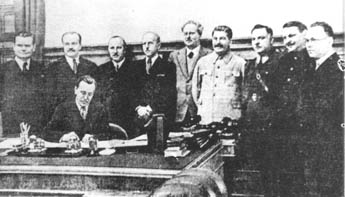
October 10, 7939 in Kremlin, I. to r.: Natkevičius, Molotov, (sitting) luozas Urbšys, Bizauskas, Raštikis, Potemkin, Stalin, Voroshilov, Zhdanov, Pozdniakov.
The treaty is signed. We return to our refreshments and sit for a while. It would appear to be time to leave. I stand . . .
— No, no, sit down! We are going to the cinema, — insists Stalin.
And indeed, after a bit, we put on our coats and take the elevator down to the Kremlin courtyard. The cool night air is refreshing. We walk along with Stalin in the lead. In front of us rises a small old, somewhat bowed, Russian Orthodox church. We turn toward its portal.
— Ivan the Terrible used to walk through here, — remarks Stalin.
Narrow steps lead downwards as if to a cellar. The modern interior dissipates all the reminiscences of antiquity inspired by the exterior. Close by the screen several benches are sparsely set about, perhaps eight of them. We sit on separate benches: Stalin with Bizauskas, Voroshilov with Raštikis, I with Zhdanov. I do not remember Molotov with us in the church. Perhaps he was excused and had gone home.
To our right there is a niche, most likely a previous addition of some sort, in which stands a table set with sweets and drinks.
On the screen — a parade of athletes. It is a long film, and perhaps when viewed with a lighter head, a pleasant one. At last "The End" flashes on screen.
Now, home to the hotel? No!
Stalin orders that another film be shown. This time "Volga, Volga ..." appears on the screen. No doubt a boat filled with happy singing youth floats along that river. Zhdanov whispers his pleasure and pride in the film and explains it to me. All of this barely reaches my consciousness. That this were over once and for all ... The end, at least.
It was after seven in the morning when we finally left the Kremlin for our hotel. To go to bed or not to? It was light already.
I summon the bellboy, a polite young man in a white jacket, and ask him for the morning papers and some coffee.
— Coffee, yes, but there are no papers yet. They're late today for some reason. No doubt something special's in the making, — he replies.
The papers appear around midday. On the front pages are the treaties we signed last night and the accompanying photographs.
At the Kremlin, at two o'clock in the afternoon, Molotov and I finish up the night's work by signing the Lithuanian text of the treaty. One could almost dress a wound with Molotov, he is so unctuous. I mention something about leaving.
— Oh no, no! — he interjects — We don't let our friends leave like that. We must celebrate.
(...)
p. 22
That same evening we left by train for our country. Molotov and other high-ranking Soviet officials, together with a military honor guard, accompanied us to the Byelorussian station.
We ride towards Vilnius and riding with us are foreign army bases for Gaižiūnai, Prienai, Alytus, and Naujoji Vilnia. One hand gives and other hand takes. Or grabs by the throat? Time will tell.
The passing Russian forests and empty autumn plains are somberly quiet and sleepy. What a dissonance between that tranquillity and my uneasy heart. "I was tormented by the contrast between the majestic serenity of nature and the deep anguish of my soul." (E. Herrict, Episodes 1940-1944). Thus the President of the French Parliament recalled his journey from Paris to Vouvray when he was forced to flee the German-occupied capital. Fortunately, he still had some place to flee to ..
We would like to thank Lituanus for their kind permission to share this article with you.
LITUANUS
LITHUANIAN QUARTERLY JOURNAL OF ARTS AND SCIENCES
Volume 34, No. 2 - Summer 1989
Editor of this issue: Antanas Dundzila
Memoirs of Juozas Urbšys
Translated and edited by Sigita Naujokaitis
http://www.lituanus.org
- Bookmark :
- Digg
- del.icio.us
- Stumbleupon
- Redit it
Venclova`s Vilnius
- Posted by - (3) Comment
This article is from the book “VILNIUS a Personal History” written by Tomas Venclova.
From reading Mr. Venclova’s Bio you can understand why we are excited and honoured to have him as one of the contributing writers for VilNews. In the future we will continue to post excerpts from his book for your reading enjoyment. We thank the publisher, The Sheep Meadow Press for their gracious consent in allowing us to share Mr. Venclova’s book with you and we would like to direct you to The University Press of New England who is the book’s distributor.
Published at:
Sheep Meadow Press
http://sheepmeadowpress.com/
Distributed by:
University Press of New England
http://www.upne.com/index_new.html
MINDAUGAS, GEDIMINAS and VILNIUS
The first Lithuanian ruler, Mindaugas, is wreathed in mystery and ambiguity―almost as much as St. Christopher on the city’s coat of arms. His rise occurred at a time when Lithuania first confronted the German knights, the so-called Knights of the Teutonic Order. Like most founders and unifiers of nations, Mindaugas probably was not a very attractive character. He did away with the majority of his opponents (among them, quite a few of his relatives), adopted Christianity, was crowned King by the Pope, but then broke with Christianity after his wife’s death―in any case, that is what the Teutonic Knights claimed. His wife’s sister, who was married to Grand Duke Daumantas, came to the funeral. According to the story, “The king shamelessly violated the law, robbing the woman of her honor by force and keeping her as his wedded wife.” Daumantas killed Mindaugas and fled to the Russian city of Pskov, where he adopted the Orthodox Christian faith. He became a famous ruler and was later canonized. Meanwhile, for a good half-century the Lithuanian state disappeared from history: what happened during this time is beyond reliable historical knowledge.
What is clear is that there were no longer any kings, only grand dukes. (After the First World War an attempt was made to restore the old monarchy. When the German Prince von Urach was called to the throne, he intended to call himself Mindaugas II. But the idea never went beyond this operetta-like plan.) Historians, relying less on documents than on patriotism, have been trying to prove that the story of Mindaugas is connected with Vilnius: he was said to have been crowned and murdered in this settlement. In any case, he is credited with having built the first cathedral, whose Romanesque ruins can be found in the vaulted cellars of the present-day Cathedral. When Daumantas took revenge against Mindaugas, they say, the cathedral again became a pagan place of worship. Ardent supporters of this tale have even found twelve stone steps and the sacrificial altar of the cult site.
Admittedly, like most stories from that period, this one has a touch of the absurd. Still, Mindaugas became the symbol of the threatened state. Not long ago, a memorial to him was erected at the mouth of the Vilnia. A somewhat naïve play* portrays him as the first Lithuanian patriot. It influenced the generation that subsequently took to the barricades for the liberation of the country from Communism. Nevertheless, the true founder of the city was not Mindaugas, but Gediminas, a ruler who came to power after this “blank” period in the history of Vilnius.
Legend has it that at first Gediminas did not rule here but in Trakai, a town surrounded by lakes, not far from the present-day capital. During his lifetime this distance seemed greater than it does today, for between the two cities lay a forest only traces of which are left. On an island in one of the lakes of Trakai there stands a huge stone castle that was built not by Gediminas, but by one of his successors. From Trakai, Gediminas set out to go hunting at the confluence of the Neris and Vilnia. The aforementioned Latin history continues the tale: “On the peak of the hill with his spear he killed a forest bull (our word for it is “aurochs”) driven toward him out of the forest thicket and the steep mountain slopes. Tired from the daylong hunt and happy at having killed the beast, he spent the night in Šventaragis Valley. In his dream he saw, on the peak of the same hill where he had killed the animal, a huge wolf that looked as if it were made completely of iron or was wearing iron armor. Hundreds of other wolves howled within it, and their howling echoed across the surrounding fields and forests.”
By happy coincidence, the pagan high priest Lizdeika lived nearby and interpreted the dream. He said a city as hard as iron and with a reputation as powerful as the howling of wolves must be founded on this spot. “And the ruler heard him out and thought the high priest had correctly interpreted the will of the gods. After observing all the rituals, he determined that the site for the castle was to be the spot where he had just killed the aurochs.” At this point, the myth turns into reality. Today, a castle built of masonry walls and stone―the oldest structure in the Vilnius―still stands on the hill, its rough appearance a contrast to the city’s later, more sophisticated architecture. But in its own way the castle fits in with the skyscrapers that now rise on the far shore of the Neris. History repeats itself: both then as now, naked pragmatism rules―then for defense, now for commerce. Just as in Trakai, the castle dates to a time somewhat later than Gediminas’s rule, but, like the hill, it bears his name.
The prophetic dream and its consequences are familiar to cultural anthropologists and mythologists, who note that the wolf links the foundation myths of Vilnius and Rome: the animal stands for the symbol of tribal leaders throughout Europe. Gediminas doesn’t dream just anywhere; he dreams in the Šventaragis Valley, at a sacred place. The name of the valley―the low plain where Vilnius Cathedral stands―is derived from the words šventas (“holy”), and ragas (“horn”). It is still called that today. “Horn” may refer to the bend in the river. Medieval chroniclers even invented a Duke Šventaragis who supposedly reigned sometime between Mindaugas and Gediminas. All that the chronicles say of him is that he ordered a funerary site to be constructed at the confluence of the rivers where, according to pagan tradition, he, his successors, and the most important ruling families would be cremated. In other words, there was already a religious center in the valley, obviously a place of worship―perhaps the one that was built on the ruins of Mindaugas’s Cathedral. Clearly, it was no accident that Lizdeika turned up. A contemporary researcher maintains that it was the high priest who advised Gediminas to spend the night near the burial site in the valley rather than in one of the nearby houses. Only at a religious site can you have a dream that will determine the future for hundreds of years. And when you prepare for a prophetic dream, you have to offer a bull, better yet a wild aurochs, as the animal sacrifice―hence, the theme of the hunt.
Lizdeika is also a figure with roots in the world of ritual and myth. He is the only Lithuanian pagan high priest whose name has entered the chronicles. His name has the same root as lizdas (“nest”)―apparently, the priest had been abandoned as a child and was found in an eagle’s nest. Mythologists consider this a typical shaman story of the sort that was common among many tribes in the Eurasian lowland plains. The old chroniclers invented a more conventional genealogy for Lizdeika: he is supposed to have been a high-ranking relative of Gediminas, who was concealed from his enemies in a tree. Incidentally, the Lithuanian noble family Radziwiłł traces its origins to Lizdeika―the name Radziwiłł (Lithuanian: Radvila) is equivalent to “foundling.” Did these beautiful and amazing adventures really take place? It’s a question that cannot be answered. The myth is part of reality and has a clear meaning: Gediminas founded the political capital at the place where the religious capital already existed, and then he blended the two. Lizdeika, by virtue of his authority, sanctioned the act.
- Bookmark :
- Digg
- del.icio.us
- Stumbleupon
- Redit it
Oops!… She did it again…
- Posted by - (0) Comment
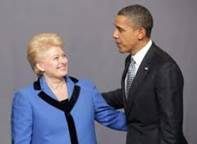
Last year, Lithuania’s President Dalia Grybauskaite openly disagreed with the U.S. on a new reduction plan for the Eastern European missile defence system, planned by the Bush administration, and in perhaps the most shocking move, snubbed U.S. President Barack Obama at a dinner in Prague, even though nearly every other Eastern European president attended.
Since becoming Lithuania's president in 2009, she has wasted no time defining her leadership. "Yes, you have to be a strict and loud partner if you want to be heard in the conversation," Grybauskaite, 55, told The Associated Press in an interview this week.
After the Obama administration, along with Russia, unfurled a strategic missile reduction plan — dubbed New Start — Grybauskaite was the only ally who criticized it, claiming the plan harmed Lithuanian security.
"Lithuania is not used to a straightforward, terse, forceful way of making statements. I admit using this style in pushing NATO defence plans for the Baltic states," she said.
U.S. cables released by WikiLeaks earlier this year show NATO privately decided in January 2010 to expand a NATO defence plan for Poland to cover members Estonia, Latvia and Lithuania.
"I am afraid that if I had chosen a different tone, Lithuania and its neighbours would be still waiting another six years for these," she said to the Associated Press, giving herself credit for USA’s and NAYO’s new strategy as revealed by WikiLeaks.
It remains to see how her latest claims of successful ‘forceful statements’ will be received and viewed by the White House, but the U.S. – Lithuanian relationship has hardly been strengthened by her comments.
- Bookmark :
- Digg
- del.icio.us
- Stumbleupon
- Redit it
|
1918 |
1990 |
|
|
1991 |
2011? |
There has, as I see it, been three distinct unification processes that took place in Lithuania over the latest 100 years – in February 1918, March 1990 and in January 1991. These unification processes have had an enormous impact on Lithuania as a nation, and this country could easily have been looking very differently today had it not been for the fact that the nation's people and leaders, at these three important moments, so clearly manifested that Lithuania demanded to be a free, independent country with norms, values and dreams based on the country’s long and proud historical background and the many characteristics that had made this country and its people precisely the nation called Lithuania. Those qualities are what made Lithuania a great force of progress and prosperity in human history.
What is required now is for this country to again pull together, confront boldly the challenges we face, and take responsibility for own future once more.
The challenge this time is totally different from the three previous times. We are this time not challenged by threats from aggressive neighbours, but rather by internal resolution and lack of involvement within the nation's own population. What we see today is almost a kind of lethargy.
The challenge is not diminished by the fact that the country's population now is scattered all over the world.
The descendants of those who left Lithuania during World War II and earlier seem to be less and less connected to their ancestors’ home country and the enormous number of people who have left Lithuania over the past decade has made the challenge even more complicated.
The way I see it, we are in other words now faced with two parallel challenges:
1) To encourage the country’s own population to take common responsibility for a Lithuania changed to the better.
2) To connect all of Lithuanian origin, wherever in the world they live, to joint efforts and cooperation.
I think she has some very good points, the young woman who wrote in our debate forum a few days ago:
- Many people are angry but refuse to take their part in making Lithuania better.
- People refuse to change themselves in the first hand.
- People have the right to elect governments, but many do not even show up at the polling stations.
- We hate corruption, but many take the easy way and bribe policemen.
- People who could lead by example also chose the easy way instead.
- Change does not happen if we don’t make it happen.
We, here in VilNews, would like to have responses from you, dear readers, to the following questions;
1) What do you think should be done for this country to again unite in common efforts for improvement and new strength as a nation?
2) What do you think should be done with regard to new bridge-building between all with some form of connection to Lithuania?
I see the resolution trends we see for this nation as very sad and serious. But, as the young woman put it, change must start with ourselves.
- Bookmark :
- Digg
- del.icio.us
- Stumbleupon
- Redit it
VilNews has now readers in 95 countries!
- Posted by - (1) Comment
![]()
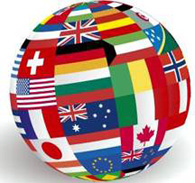
It is four weeks since VilNews was launched as an online e-magazine - on the 15th of February.
And what a development hasn’t it been since then!
We have had around 12 000 unique readers, 20 000 visitors all in all. Our different pages have been opened 125.000 times, and our articles have been opened no less that 1,5 million times!
We think it’s fair to call this a tremendous success...
USA and Lithuania were for some time competing every day about being the leading nation among our VilNews readers. But when March came, USA jumped ahead and is now in a clear lead.
These are our reader figures of today:
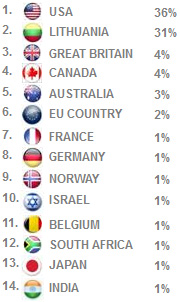
15. South Korea
16. Poland
17. Spain
18. Denmark
19. Ireland
20. Estonia
21. Netherlands
22. Latvia
23. Russian Federation
24. Turkey
25. Finland
26. Switzerland
27. Czech Republic
28. Italy
29. Brazil
30. United Arab Emirates
31. Romania
32. Pakistan
33. Hungary
34. Portugal
35. Ukraine
36. Egypt
37. Belarus
38. Bulgaria
39. Republic of Serbia
40. New Zealand
41. Vietnam
42. Indonesia
43. Greece
44. China
45. Nigeria
46. Philippines
47. Singapore
48. Iceland
49. Moldova
50. Lebanon
51. Georgia
52. Saudi Arabia
53. Iran
54. Ghana
55. Malaysia
56. Venezuela
57. Slovenia
58. Luxembourg
59. Austria
60. Kazakhstan
61. Argentina
62. Sri Lanka
63. Colombia
64. Cyprus
65. Malta
66. Croatia
67. Jordan
68. Ivory Coast
69. Kenya
70. Thailand
71. Saint Vincent & Grenadines
72. Mexico
73. Slovak Republic
74. Peru
75. Hong Kong
76. Albania
77. Botswana
78. Benin
79. Nepal
80. Turkmenistan
81. Mauritius
82. Tajikistan
83. Oman
84. Macedonia
85. Qatar
86. Taiwan
87. Costa Rica
88. Senegal
89. Cameroon
90. Uzbekistan
91. Maldives
92. Isle of Man
93. Syria
94. Azerbaijan
95. Bosnia-Herzegovina
- Bookmark :
- Digg
- del.icio.us
- Stumbleupon
- Redit it
It is spring in Lithuania! The real estate market is starting to pick up after three dreary years. I will therefore now offer those interested in a new home or a new investment, to learn more about two objects in what is normally referred to as the luxury class.
The first object is an existing penthouse apartment in Vilnius Old Town. The second object is a planned townhouse development situated at the river Neris in Zverynas.
Please contact me as soon as possible if any of these objects are of interest for you.
Write me at aage.myhre@VilNews.com
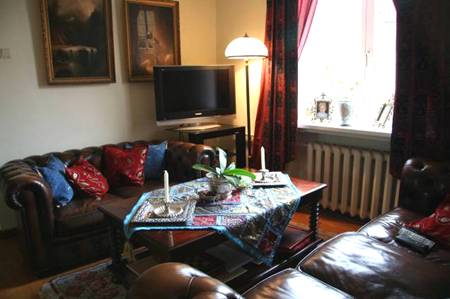
Three-floor Old Town penthouse. One of the best in Vilnius. Prime location.
The apartment is located at the very heart of Vilnius Old Town – yet on top of it, far away from the street’s hustle and bustle! It is a genuine penthouse on three levels – with a main floor, a mezzanine and a top floor with the most fantastic views over Vilnius Old Town (7,5 meters from main floor to the ceiling top!).
It was architect-designed and built in 1999, called one of the most desirable and exclusive apartments in Vilnius by the press. All equipment is state-of-the-art, including all plumbing, wiring and other hidden installations. All windows and doors are new, the roof and walls are thoroughly insulated with mineral wool, and the apartment is decorated to the highest standard throughout. Mainly parquet flooring, with ceramic tiles in bathrooms. The top floor view over Vilnius Old Town has to be seen to be believed.

Three exclusive townhouses, each with around 200 m2 floor space, are planned built at one of Lithuania’s very best land plots, in the Vilnius district of Zverynas. The plot is exceptionally green, south west oriented, bordering the river Neris ant the huge, forested Vingis Park at the other river side.
Each townhouse will cover a total floor space of between 150 and 200 sq.m., plus double garages for each unit. Each unit will also have private gardens and plenty of outdoor space for kids and grown ups.
Advantages of the development are as follows:
· Zverynas is known as the diplomat district of Vilnius; prestigious, safe and green
· The development is located within walking distance from the city centre
· The townhouses will be planned with attention to security for kids and grownups
· Each unit can be more or less tailor made for each family
· The green outdoor areas/gardens are ideal for barbeque, private life etc
· The development offers unique privacy qualities in an utmost green environment
· The view from each of the units will be to the west, to Vingis Park and the River Neris
- Bookmark :
- Digg
- del.icio.us
- Stumbleupon
- Redit it
VilNews e-magazine is published in Vilnius, Lithuania. Editor-in-Chief: Mr. Aage Myhre. Inquires to the editors: editor@VilNews.com.
Code of Ethics: See Section 2 – about VilNews. VilNews is not responsible for content on external links/web pages.
HOW TO ADVERTISE IN VILNEWS.
All content is copyrighted © 2011. UAB ‘VilNews’.

 Click on the buttons to open and read each of VilNews' 18 sub-sections
Click on the buttons to open and read each of VilNews' 18 sub-sections 






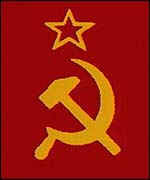

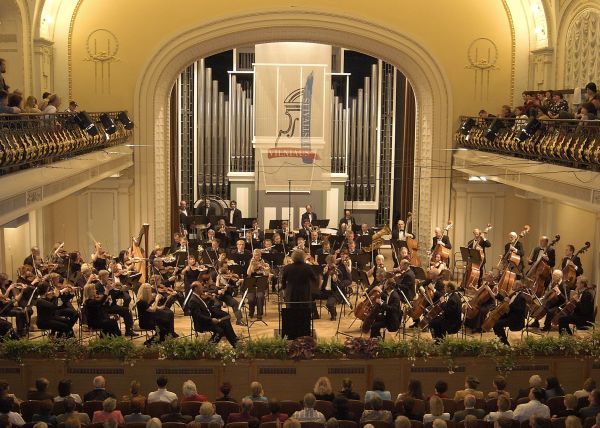


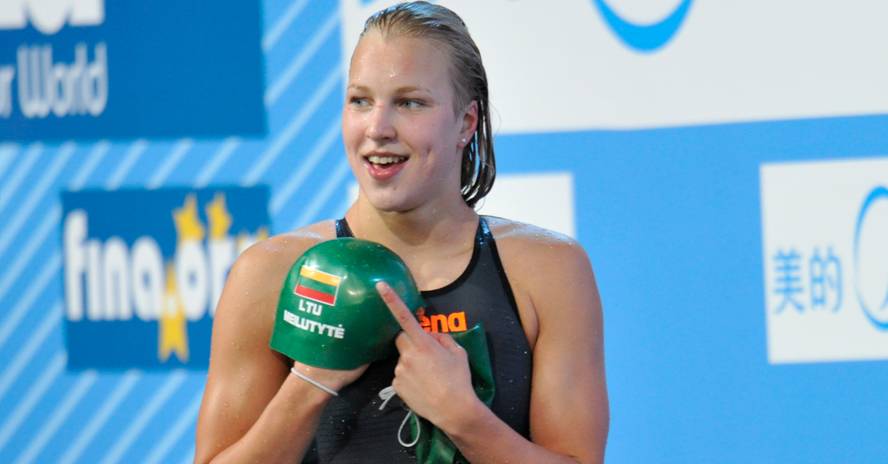
















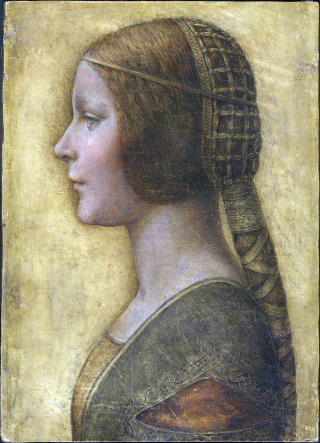
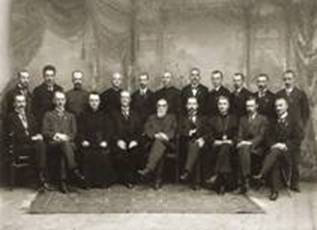
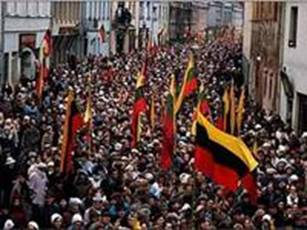
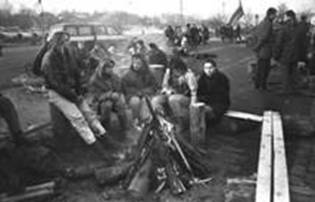
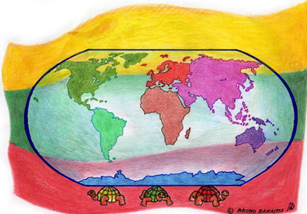









.jpg)



